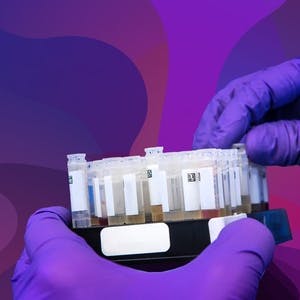- Home
- All updates
- EDGE Insights
- Industries
- Company Search
- My Watchlists (Beta)
EDGE Insights
Filter
EDGE Insights
Cell and gene therapy: Repairing the building blocks of life
Cell & Gene Therapy
Mar 12, 2023

Cell & Gene Therapy
By Dhitshana Gunaseelan · Mar 12, 2023
Cell and gene therapy: Repairing the building blocks of life
This Insight was last updated in March 2023; for an up-to-date market map and the latest funding information, please refer to the Cell & Gene Therapy industry hub.
The human body is a remarkable structure composed of countless minuscule cells—the basic building blocks of life. Like bricks used to build a house, the intricate organization of these cells forms the complex structure of the body. However, like any structure, the body is not invulnerable and can suffer from structural damage and dysfunction like injuries, diseases, and wear and tear. Cell and gene therapies provide groundbreaking approaches to repairing or replacing dysfunctional cells and enabling the smooth functioning of the human body.
Though still early days, these therapies could potentially change the way we tackle previously untreatable diseases. There is no better illustration of its immense potential than in the recent case of a 19-month-old baby girl in the UK diagnosed with a rare genetic disorder (metachromatic leukodystrophy [MLD]), who showed no signs of it after being treated with a gene therapy developed by Orchard Therapeutics called Libmeldy. The treatment involved extracting stem cells from the child, replacing the faulty gene with a healthy one capable of producing a crucial enzyme, and administering the modified cells back into the body.
In this Insight, we take a detailed look into cell and gene therapy, its related technologies, potential use cases, demand drivers, and potential growth risks.
Contact us
Gain access to all industry hubs, market maps, research tools, and more
Get a demo
By using this site, you agree to allow SPEEDA Edge and our partners to use cookies for analytics and personalization. Visit our privacy policy for more information about our data collection practices.